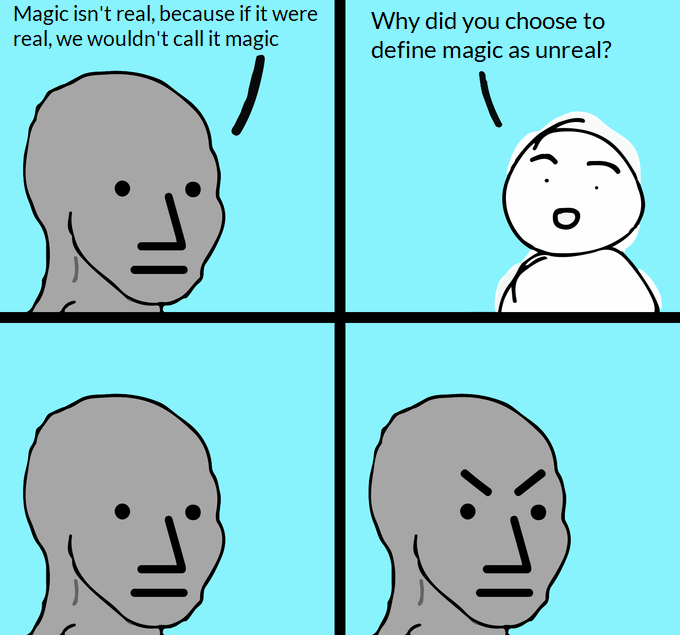Because magic has in common verbiage typically been used to describe phenomena we don't know the mechanism behind.
And all those other things we do understand the mechanism behind. Along the way to understand how we figured out standards that elevate physical phenomena from imagined ones, and slowly we found that there's very little room left for the unknowable to affect our reality.
So if the word magic is to have any distinct meaning, there's only left "that which isn't real enough to affect us".
But you're of course free to redefine words as feels useful to you. I find flying, quantum teleportation, and cognition magical, but that more describes the wonder and awe of the inner workings of my world, rather than if it's real or not.
